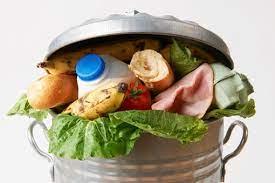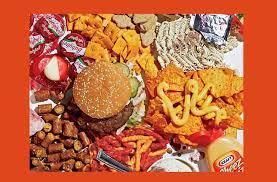Introduction:
Food waste is a pressing global issue with significant environmental, economic, and ethical implications. Every year, millions of tons of food end up in landfills, contributing to greenhouse gas emissions and resource depletion. Minimizing food waste not only benefits the planet but also promotes better nutrition and supports sustainable eating habits. In this article, we will explore practical tips and strategies to reduce food waste, allowing us to nourish our bodies while caring for the environment.
1. Plan Meals and Make a Shopping List:
One of the most effective ways to minimize food waste is through meal planning. Take a few minutes each week to plan your meals, considering the ingredients you already have on hand and what needs to be used before it spoils. Make a shopping list based on your meal plan, ensuring that you only purchase what you need. Planning ahead prevents impulse buying and helps you utilize ingredients efficiently.
2. Understand Expiration Dates:
It’s crucial to understand expiration dates and the difference between “sell-by,” “use-by,” and “best-by” dates. These labels often cause confusion, leading to premature discarding of perfectly safe and edible food. “Sell-by” dates indicate the last day a store should sell a product, while “use-by” and “best-by” dates are quality indicators, suggesting when a product might be at its peak freshness. Trust your senses—smell, sight, and taste—to determine if a food item is still suitable for consumption beyond the listed date.
3. Practice First-In, First-Out (FIFO):
Implement the FIFO method in your kitchen—First-In, First-Out. When unpacking groceries or organizing your pantry, move older items to the front and place newer purchases at the back. This method ensures that older ingredients are used first, reducing the likelihood of food getting forgotten and eventually wasted. By rotating your food inventory, you’ll be more aware of what needs to be consumed soon, helping to minimize waste.
4. Get Creative with Leftovers:
Leftovers often end up forgotten in the fridge, only to be discarded later. Instead, view leftovers as a creative opportunity. Reinvent them into new dishes or repurpose them as ingredients for future meals. For example, cooked vegetables can be added to soups or stir-fries, while overripe fruits can be used in smoothies, jams, or baked goods. By getting creative with leftovers, you’ll not only save money but also discover delicious and unexpected flavor combinations.
5. Practice Proper Storage:
Proper storage plays a significant role in preventing food waste. Understand the optimal storage conditions for different ingredients to maintain their freshness. For example, storing vegetables in perforated bags or containers with a damp cloth can help extend their shelf life. Invest in airtight containers for dry goods to keep them fresh and protect them from pests. Additionally, utilize your freezer to store excess produce, cooked meals, or bread that might otherwise go to waste.
6. Preserve and Ferment:
Preserving and fermenting are age-old techniques that allow us to extend the shelf life of perishable foods. Learn simple preservation methods such as canning, pickling, or making jams and preserves. Fermentation can transform surplus vegetables into flavorful kimchi, sauerkraut, or kombucha. These techniques not only prevent food waste but also add variety and depth to your meals.
7. Donate Surplus Food:
If you find yourself with excess food that you cannot consume, consider donating it to local food banks, shelters, or community organizations. Many establishments accept fresh produce, canned goods, and non-perishable items to help those in need. By sharing your surplus food, you contribute to reducing hunger in your community while preventing it from going to waste.
8. Compost Organic Waste:
Even with our best efforts, there will inevitably be some food scraps that cannot be consumed or donated. Instead of throwing them in the trash, start a composting system. Composting allows organic waste to decompose naturally, producing nutrient-rich soil that can be used in your garden. By composting, you close the loop of sustainability, giving back to the earth and reducing the burden on landfills.
Conclusion:
Minimizing food waste is a collective responsibility that begins in our kitchens. By implementing these practical tips—planning meals, understanding expiration dates, practicing FIFO, getting creative with leftovers, practicing proper storage, preserving, and fermenting, donating surplus food, and composting—we can make a positive impact on the environment and foster sustainable eating habits. Let’s prioritize food waste reduction, nourishing our bodies, and contributing to a healthier planet for generations to come.
Written by: Hani Hachicho






